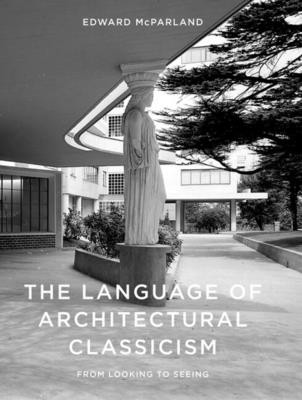
- We will send in 10–14 business days.
- Author: Edward McParland
- Publisher: Lund Humphries Publishers Ltd
- ISBN-10: 1848226594
- ISBN-13: 9781848226593
- Format: 17.9 x 24.6 x 2.4 cm, kieti viršeliai
- Language: English
- SAVE -10% with code: EXTRA
Reviews
Description
Classicism is ubiquitous, from the facade of Selfridges to the letterhead of The Times. This book reveals its complexities, expressiveness and invention, inviting readers to discover in their surroundings a rich language of form. Making connections between historical periods, it focuses on looking closely at the buildings and their details, from which useful generalisations emerge. The book discusses how Renaissance architects, when faced with the bewildering variety of classical antiquity, produced canonical versions of the orders, and asks how the highly regulated language of classicism can sustain the originality of a Michelangelo, or a Soane. It looks at the human body in relation to classical architecture, examines the various treatments of the wall and of lettering, and discusses architectural backgrounds in painting.
EXTRA 10 % discount with code: EXTRA
The promotion ends in 21d.17:24:47
The discount code is valid when purchasing from 10 €. Discounts do not stack.
- Author: Edward McParland
- Publisher: Lund Humphries Publishers Ltd
- ISBN-10: 1848226594
- ISBN-13: 9781848226593
- Format: 17.9 x 24.6 x 2.4 cm, kieti viršeliai
- Language: English English
Classicism is ubiquitous, from the facade of Selfridges to the letterhead of The Times. This book reveals its complexities, expressiveness and invention, inviting readers to discover in their surroundings a rich language of form. Making connections between historical periods, it focuses on looking closely at the buildings and their details, from which useful generalisations emerge. The book discusses how Renaissance architects, when faced with the bewildering variety of classical antiquity, produced canonical versions of the orders, and asks how the highly regulated language of classicism can sustain the originality of a Michelangelo, or a Soane. It looks at the human body in relation to classical architecture, examines the various treatments of the wall and of lettering, and discusses architectural backgrounds in painting.


Reviews